You’re on an off-road trip with the family, enjoying nature’s scenery, and your Jeep Wrangler suddenly dies.
As frustrating and potentially dangerous as it may sound, this issue is not entirely rare.
Over the years, many Jeep Wrangler owners have reported that their vehicles randomly die while driving.
In some cases, they’re able to restart them after some time. But in others, the jeeps won’t start.
Most of the time, it happens due to a malfunctioning crank sensor, fuel system problems, ignition system problems, weak alternator/battery, bad spark plug, or bad MAF/O2 sensors.
In this post, we’ll discuss them (and other potential reasons) in great detail. Many of these tips can also be applied to other Jeep vehicles, such as Cherokee and Renegade.
11 Reasons Why Jeep Wrangler Shuts Off While Driving
1. Faulty Crank Position Sensor
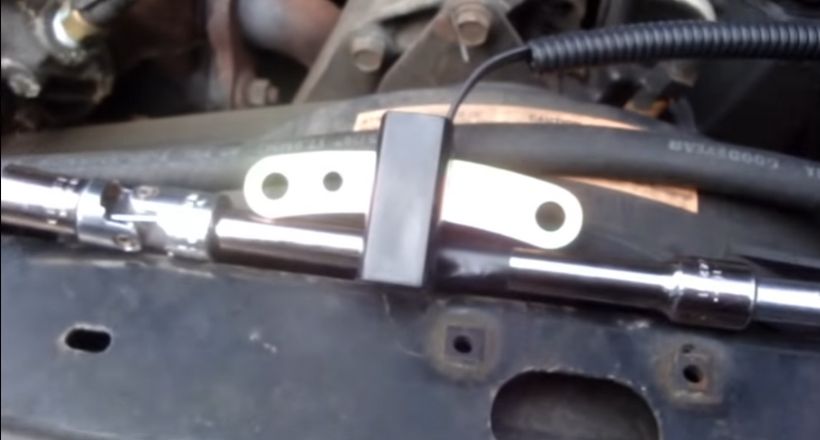
If the Jeep Wrangler dies but restarts after a few minutes, the problem is with the crank sensor.
As its name implies, It’s a sensor that monitors the crankshaft’s position. The ECU then uses this information to perform a few critical functions in the engine.
A faulty crank sensor can cause problems like Incorrect ignition timing or Inaccurate fuel injection, as the ECU can’t tell what’s going on inside the engine.
One quick way to verify it is by lightly tapping the sensor with a hammer while the engine runs. If the engine misses or dies upon tapping, there’s some problem with the crankshaft position sensor.
Fortunately, this problem is relatively easy for DIY. Here’s how you can do it:
- Unplug the connector,
- Unscrew the old sensor using a 10mm socket wrench.
- Put a new crank sensor (it costs less than 50 bucks on Amazon) in its place.
- Tight the connection. Don’t overdo it, as this sensor is made of plastic and can crank upon pressure.
- Plug the connector back into the socket.
2. Malfunctioning Fuel Pump
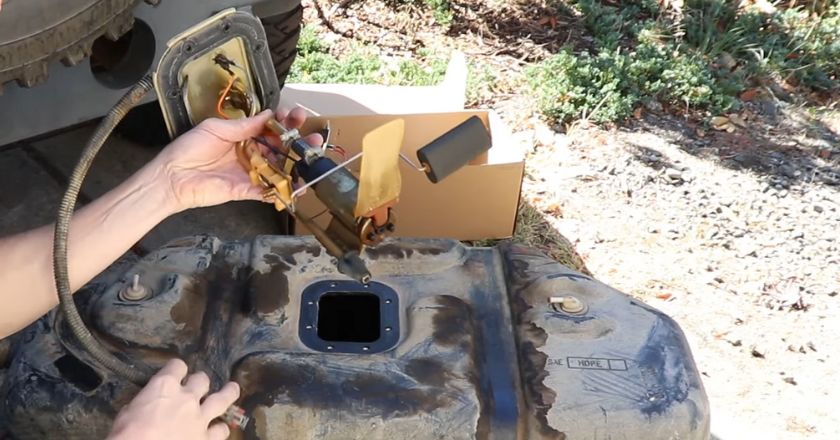
The next thing we’ll check is the fuel pump.
This pump delivers the fuel from the tank to the engine and the fuel injectors. Therefore, if it malfunctions (due to aging, leaking, or a clogged fuel filter), the engine will not get the right amount of fuel, and the engine will stall.
Sometimes, a fuel pump can malfunction due to issues with its fuse and relay.
Like other vehicle components, the fuel pump has a fuse that protects it against short circuits. If this fuse is blown, the fuel pump will stop working.
Similarly, the fuel pump relay is a switch that controls the power supplied to the fuel pump. If this relay goes bad, the fuel pump will not get enough power, and you’ll get fuel delivery issues.
3. Malfunctioning Fuel Injector
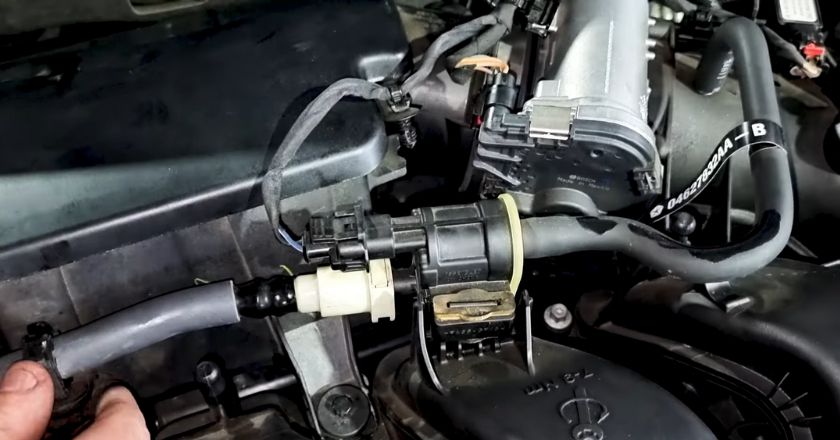
Fuel injectors are responsible for injecting fuel into the engine for combustion. The injected fuel’s timing and amount are critical for creating an ideal fuel-to-air ratio.
Therefore, if your fuel injectors are not working properly, you’ll experience poor combustion, lean/rich air-fuel mixture, reduced fuel efficiency, or engine stalling.
There can be several reasons behind a malfunctioning fuel injector, but the most common ones are fuel contaminations, physical damage/leakage, and aging.
4. Clogged/Leaking Fuel Line
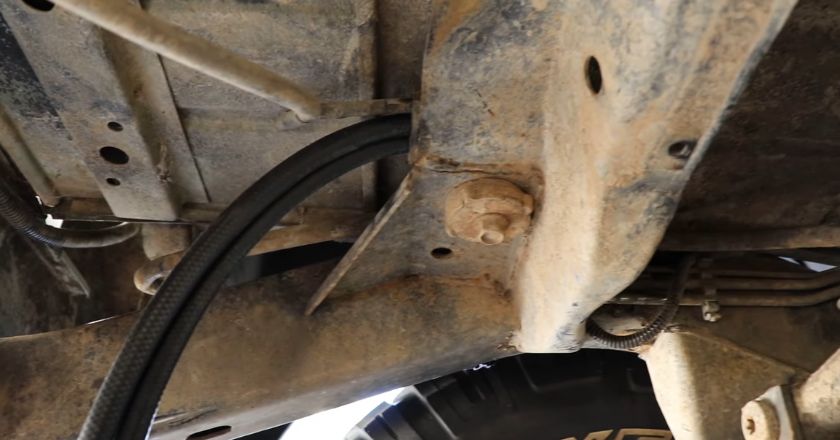
The fuel line is a pipe that carries the fuel from the tank to the engine.
If this pipe is clogged with dirt, the fuel will have an inconsistent flow, resulting in a lean air-fuel mixture and, eventually, loss of power.
Similarly, if it’s leaking due to any damage, the fuel pressure will drop – causing the engine to stall due to insufficient fuel supply.
In some other vehicles, such as the ones featuring Duramax engines, this issue can trigger the reduced engine power message (as the low fuel pressure will make the engine lose power, if not stall entirely).
In short, you need to confirm that the fuel line in your Jeep Wrangler doesn’t have any of those issues.
5. Faulty Ignition Switch
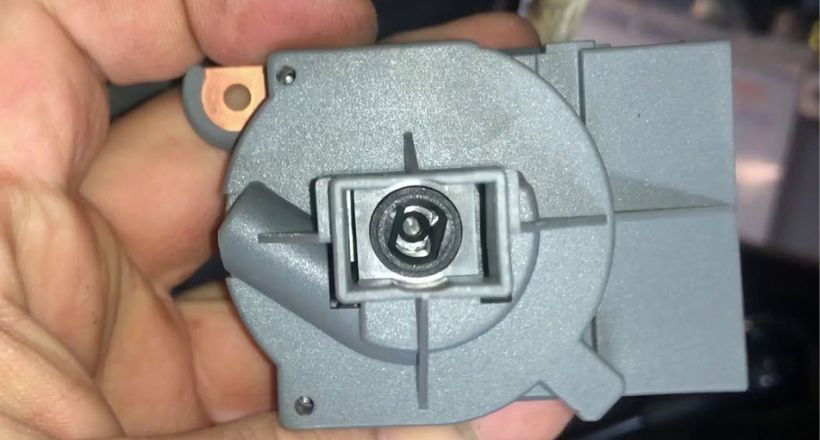
An ignition switch provides power to different critical components of a vehicle, including the fuel pump and ignition system, when you turn the key to the ON position.
A faulty switch (due to corrosion or dirt buildup) can cause these systems not to get power and your vehicle to shut off.
This issue also commonly occurs in other Jeep vehicles, especially the Cherokee.
If the dashboard lights turn off when your vehicle shuts off, the ignition switch is the problem.
6. Faulty/Old Spark Plug
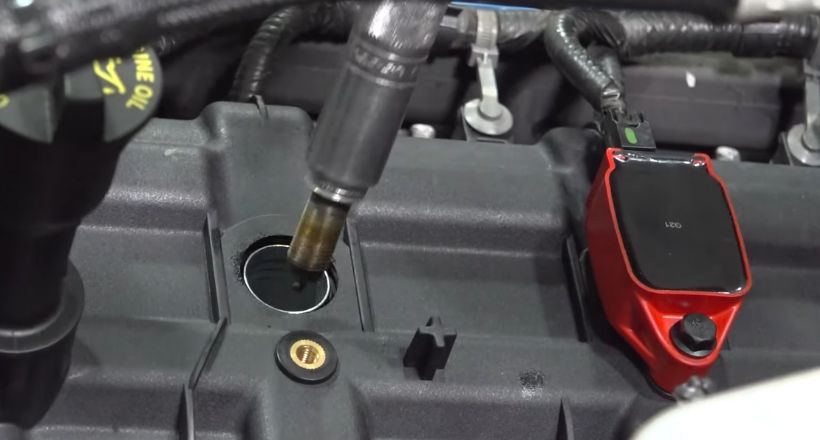
The spark plug delivers a spark from the ignition coil to the combustion chamber. Then, that spark will combine with the air-fuel mixture to result in combustion.
A faulty spark plug will produce weaker and inconsistent combustion, which can cause the engine to misfire, poor acceleration, and more fuel consumption.
Sometimes, they can have reduced efficiency simply due to aging.
Therefore, you should test these plugs and ensure they work correctly. And replace them if they’re more than 30,000 miles old.
7. Dirty/Aging Idle Control Valve
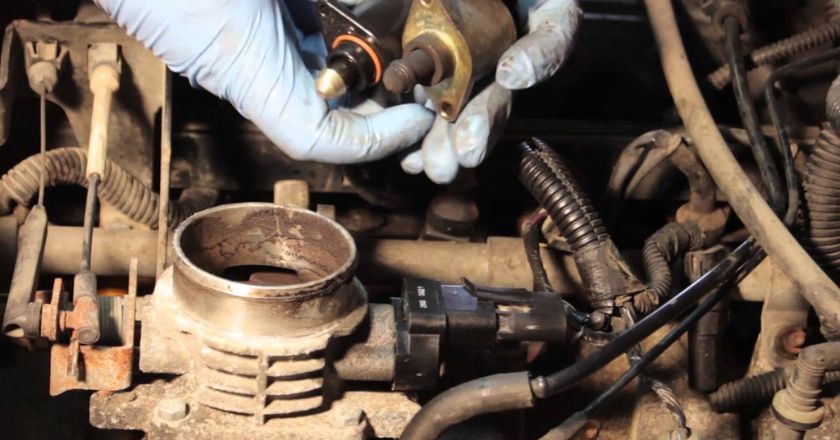
The Idle Control Valve, or ICV, is commonly found in older vehicles with cable-operated throttle bodies or port fuel injection systems. Its job is to ensure that the engine idles smoothly instead of stalling.
Therefore, if you have an older vehicle that shuts off only at idle or at low-speed driving, it can be due to a faulty Idle Control Valve. It mainly happens due to dirt buildup or wear and tear.
You can try fixing this issue by cleaning the valve. If that doesn’t help, you’ll have to replace it with a new one
8. Malfunctioning Alternator
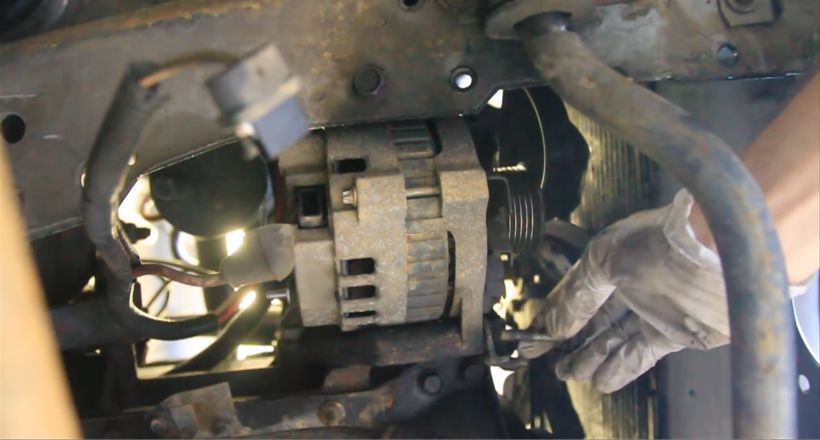
The alternator is responsible for powering all the electrical systems in your vehicle and ensuring that the battery remains fully charged.
If it goes bad, those systems will start to draw power from the battery until it’s fully drained. Once the battery is 100% drained, these systems stop working, and the vehicle shuts off.
Therefore, you should check your alternator to see if none of the above solutions have worked.
Here’s how you can do it with a multimeter:
- Set the multimeter to DC Voltage
- Connect the multimeter leads to the battery terminals and turn on the engine.
- The voltage reading should be 13.5-14.2V.
- If the reading is below 13V, the alternator is weak and is not charging the battery.
9. Faulty PCM
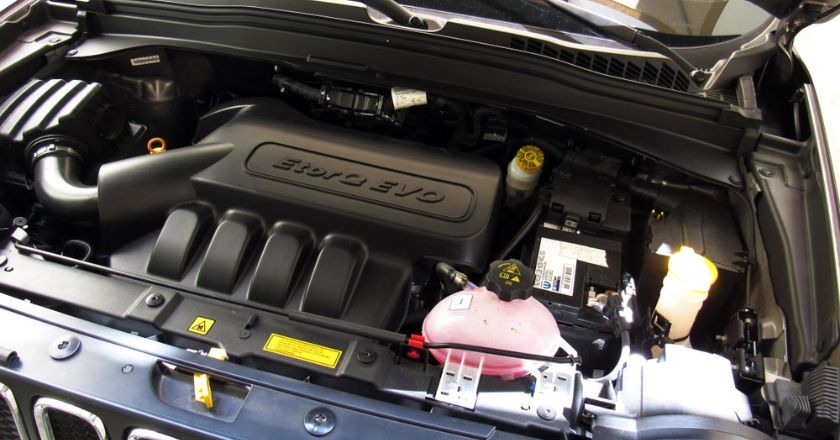
In rare cases, the Jeep Wrangler can stall during driving due to a faulty PCM.
As this module handles different engine-related tasks, any problems can cause the vehicle to malfunction.
To verify that, turn on your vehicle and lightly tap on the PCM with a screwdriver. If you feel a loss of power, the PCM is having some issues.
10. ASD Relay Not Working
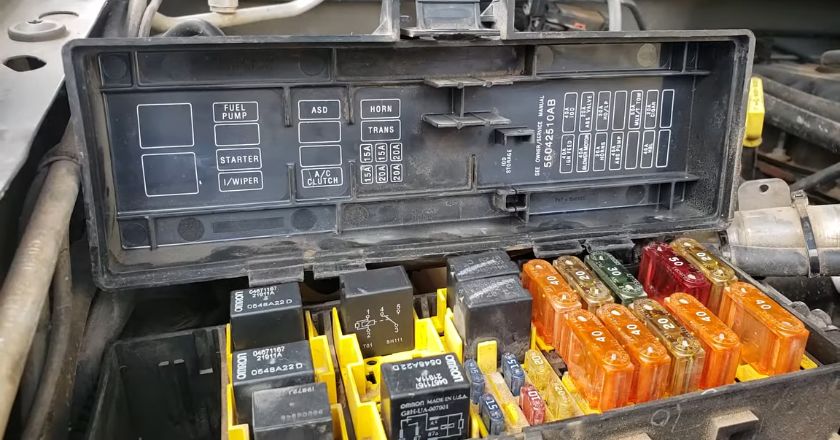
The ASD (Auto Shutdown) relay is found in many Jeep vehicles. It provides power to different engine components, such as the ignition coil, fuel injectors, and sometimes the fuel pump.
It means none of those abovementioned components will work if this relay is not working.
To check for any issue, you need to measure the resistance between its pins (pins 85 and 86, specifically). It should give you 50-200 Ohms.
If not, the relay is not working properly and should be replaced.
You can check the video below for more information:
11. Other Less-Common Reasons:
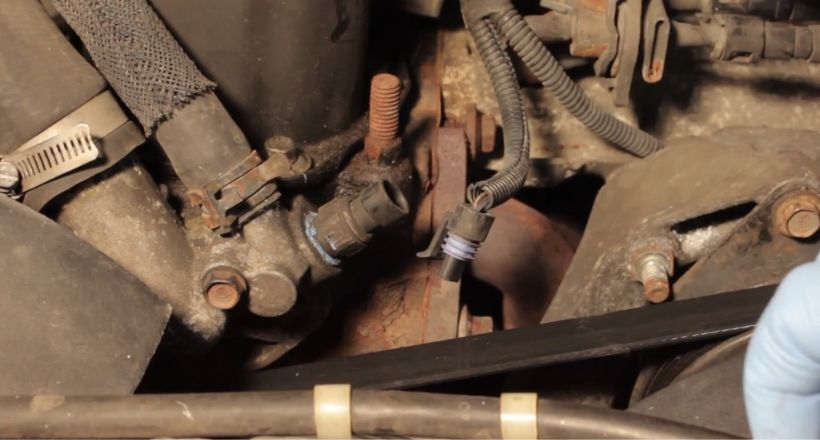
Below are some additional issues that can indirectly cause a Jeep Wrangler to shut off.
- Bare wires next to the distributor are touching each other, causing a short.
- Malfunctioning MAF (Mass Air Flow) sensor.
- Malfunctioning O2 Sensor.
- Malfunctioning Engine Coolant Temperature Sensor.
Conclusion
So these are some common issues that can cause the Jeep Wrangler to die while you’re driving.
Bear in mind that this list is not exhaustive. And there’s a possibility that you have checked for all of the issues mentioned above, but the Jeep Wrangler is still shutting down.
In that case, the only option is to consult a professional mechanic.
Frequently Asked Questions
Why Does My Jeep Shut Off While Driving And Won’t Start?
If your Jeep shuts off while driving and won’t start again, it can be due to a faulty fuel pump, clogged fuel filter, bad spark plug/wiring, bad MAF sensor, or dead battery.
Why Jeep Wrangler Dies While Driving But Restarts?
If your Jeep Wrangler dies while driving but restarts after some time, it’s primarily due to fuel or ignition system-related problems.
What are the Signs of a Clogged Fuel Filter?
Common signs of a clogged fuel filter include the vehicle not starting easily (or not starting at all), reduced fuel efficiency, loud noises from the fuel pump, and rough idling.
Can Transmission Cause Car To Shut Off?
Although it’s not common, transmission-related problems, such as a Damaged torque converter, low transmission fluid, and faulty TCM, can cause the engine to stall and shut off your vehicle.
What is the Average Cost of Replacing a Fuel Pump?
The cost of replacing a fuel pump depends on your vehicle and whether you’ll do it by yourself or hire a mechanic. Therefore, depending on your route, it can cost you $300-$1000.
How Can I Unclog My Fuel Filter?
To clean a fuel filter, you must locate and remove it, spray it with a pressurized carburetor cleaner, and then air-dry it before reinstalling it into the vehicle.
Can Low Fuel Cause Car Stall?
Low fuel can cause different problems (such as inconsistent fuel supply and fuel pump overheating) that can cause a vehicle’s engine to stall.


Negative and positive battery terminals are damaged and need to be replaced.
My car repair shop is telling me this is the reason. Is this true?
If the battery terminals are indeed damaged, they can make the connection inconsistent and cause voltage fluctuations – resulting in a vehicle shutting off.
You can try cleaning them with baking soda + water mixture as corrosion is the most likely cause for damaged terminals.
However, if cleaning doesn’t do the job or if the damage is physical, replacing the terminals is the best option.
My vehicle is in the shop and they are charging me between $1000-1100 to replace the terminals!
You are offering an awesome service! Thank you so much for your advice!!!